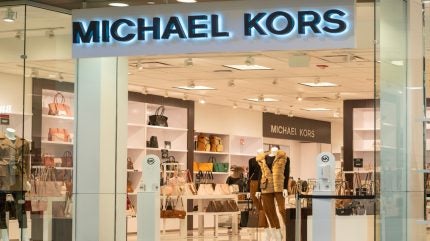
Global luxury fashion group Capri Holdings’ prospective $8.5bn merger with lifestyle brand Tapestry has been stalled by Jennifer Rochon, a US district judge.
The merger has been halted, citing concerns of reducing competition in the luxury handbag market, reported Bloomberg.
This decision has delivered a blow to the company’s strategy for competing in the luxury brand market. The shares of Capri plummeted by nearly 46% following the decision. Trading at $22.46, Capri’s stock fell sharply from Tapestry’s offer of $57 per share.
Capri has been grappling with execution issues across its brands, leading to market share losses amid a broader luxury market slowdown, reported Reuters.
“The merging parties are close competitors, such that the merger would result in the loss of head-to-head competition,” Rochon said in a 169-page ruling.
Rochon concluded that the acquisition would result in a company holding 59% of the accessible luxury market.
How well do you really know your competitors?
Access the most comprehensive Company Profiles on the market, powered by GlobalData. Save hours of research. Gain competitive edge.

Thank you!
Your download email will arrive shortly
Not ready to buy yet? Download a free sample
We are confident about the unique quality of our Company Profiles. However, we want you to make the most beneficial decision for your business, so we offer a free sample that you can download by submitting the below form
By GlobalDataLast August, Tapestry agreed to acquire Capri in a bid to forge a US luxury powerhouse capable of rivalling larger European competitors.
The combined entity would have brought together major fashion brands such as Tapestry’s Coach, Kate Spade, and Stuart Weitzman with Capri’s Versace, Jimmy Choo, and Michael Kors.
The US Federal Trade Commission (FTC) filed a lawsuit in April this year to prevent the merger, citing concerns that it would quash “direct head-to-head competition” between the two leading US handbag manufacturers.
During a trial last month, the FTC argued that, similar to Rochon, the merger would result in an oversized company with the potential to unfairly hike prices.
Rochon rejected the defence put forward by the companies, which included the argument that handbags are nonessential items and that consumer choice could keep prices in check.



